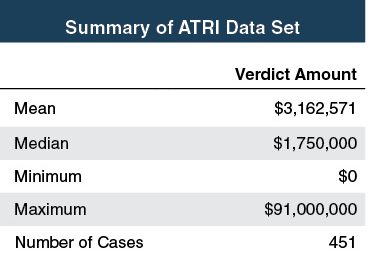Trucking Industry Explosions and Implosions
The trucking industry has recently been shaken by a series of large accident-related litigation verdicts, also known as nuclear verdicts. The definition of what constitutes a nuclear verdict can vary; however, the most common definition is verdicts in excess of $10 million. No matter how they are defined, nuclear verdicts are causing upheaval in the trucking industry. Trucking companies have historically only had to insure drivers for $1 million each, amplifying the effect of significantly larger verdicts.
- In 2017, RCX Solutions Inc. received a legal verdict of $23 million. In 2019, this verdict was reduced to $7.5 million by the U.S. Circuit Court of Appeals. Following the verdict, RCX was unable to renew financing and closed in March 2020.
- In May 2018, a jury awarded an $89.7 million award against Werner Enterprises.
- In July 2018, a jury penalized FTS International, an oil company that was shipping fracking sands through its in-house fleet, with a verdict of $101 million.
- In April 2019, a jury award $33.6 million against JHOC, Inc.
- In August 2019, a jury awarded a $280 million verdict against Schnitzer Southeast and Schnitzer Steel.
- In September 2019, a jury awarded a $26.6 million verdict against Country Wide RV Transport (CWRV) after an independent contractor driver fell asleep at the wheel. CWRV announced its intentions to shut down as of November 1, 2019.
- In February 2020, a federal jury in Georgia awarded a $21 million verdict against trucking company JW Harper Farms and its insurance company.
The American Transportation Research Institute (ATRI) conducted an analysis of over 400 cases from 2006 through 2019. ATRI issued its findings in its June 2020 publication “Understanding the Impact of Nuclear Verdicts on the Trucking Industry.” The table below summarizes the data analyzed by ATRI. While the majority of verdicts still fall under $2 million, the number of large verdicts has increased, and the size of those large verdicts has continued to grow.
According to ATRI’s analysis, nuclear verdicts have increased at a much faster rate than can be accounted for by inflation or increase in health care costs. The chart below (from ATRI’s June 2020 publication) shows the rapid increase in verdict size.
It is not a surprise that trucking companies are already responding to these verdicts. Many companies are beefing up safety measures, including installing in-cab cameras to watch drivers and keep an extra eye on the road. Others are conducting more thorough reviews of drivers and are paying closer attention to prior incidents.
Some of the biggest impact can be seen in insurance premiums in the industry. The average insurance premium increased 42% from 2010 to 2018, and several major underwriters have exited the trucking industry altogether. Premiums are only expected to go higher – possibly increasing as much as 20% or 30% in 2020. Higher premiums have changed the way some companies conduct business. Rather than operate their fleets directly, some carriers have leased their trailers to a larger firm, hoping to take advantage of the larger company’s insurance policy.
Overall, the increase in nuclear verdicts fuels uncertainty in the trucking industry, making it difficult for trucking companies to budget insurance and litigation expenses.
Originally published in the Value Focus: Transportation & Logistics, Second Quarter 2020.




